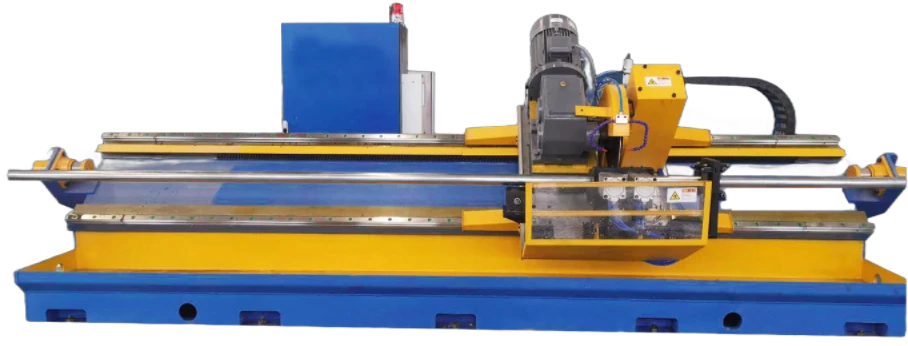Wiring Pipe Production Equipment for Efficient Manufacturing Solutions
The Evolution and Importance of Wiring Pipe Making Machines
In recent years, the demand for efficient, high-quality wiring pipe making machines has surged due to their pivotal role in various industries, including construction, automotive, and telecommunications. These machines are designed to produce wiring pipes that are integral for housing electrical wires, ensuring safety, durability, and functionality.
What is a Wiring Pipe?
A wiring pipe, commonly referred to as electrical conduit, is a tubing system used to protect and route electrical wiring in a building or structure. These pipes are made from various materials, including PVC, metal, and fiberglass, and come in different shapes and sizes to meet specific installation requirements. The wiring pipes not only safeguard the wires from physical damage but also provide a fire-resistant barrier, thereby enhancing safety in electrical installations.
The Function of Wiring Pipe Making Machines
Wiring pipe making machines automate the production of these essential conduits, allowing manufacturers to meet the growing market needs efficiently. These machines can produce a wide range of wiring pipes, ensuring uniformity and precision in size and shape. A typical wiring pipe making machine operates through processes such as extrusion, cutting, and forming, which altogether streamline production and minimize human error.
The extrusion process involves forcing raw material through a die, shaping it into the desired pipe form. This step is crucial as it determines the pipe's strength and flexibility. Once the pipes are formed, they undergo cooling and cutting, ensuring that the final product is ready for distribution. Advanced wiring pipe making machines are equipped with automated systems that monitor and control various parameters during the manufacturing process, thus improving quality and efficiency.
Benefits of Modern Wiring Pipe Making Machines
wiring pipe making machine

1. Increased Precision Modern machines integrate advanced technology, such as computer numerical control (CNC), to ensure precise measurements and consistent product quality. This precision reduces waste and minimizes the need for costly rework.
2. Enhanced Speed With automation, the production speed of wiring pipes has significantly increased. High-capacity machines can produce thousands of meters of piping in a fraction of the time it would take manually, allowing manufacturers to fulfill large orders promptly.
3. Cost Efficiency The initial investment in a wiring pipe making machine can be substantial, but the long-term savings are evident. Reduced labor costs, lower levels of scrap material, and faster production times contribute to overall cost efficiency.
4. Versatility Modern machines can produce various types of wiring pipes, accommodating different materials such as PVC and metal. This versatility allows manufacturers to cater to diverse customer needs without significant modifications to their production lines.
5. Sustainability Many newer machines are designed with energy efficiency in mind. By optimizing power consumption and utilizing recyclable materials, manufacturers can reduce their carbon footprint, aligning their operations with global sustainability trends.
Conclusion
In conclusion, wiring pipe making machines are vital in the modern manufacturing landscape, supporting the safe and efficient distribution of electrical energy across various sectors. As technology continues to advance, these machines will likely evolve, integrating even more automation and efficiency to meet the needs of an increasingly complex market. Investing in high-quality wiring pipe making machines not only enhances production capabilities but also contributes to the safety and reliability of electrical systems worldwide. As such, they are indispensable tools for manufacturers seeking to maintain a competitive edge in an ever-evolving marketplace.
-
High Frequency Straight Seam Welded Pipe Production Line-BzZhou Xinghua Machinery Equipment Manufacturing Co., LTD.|line pipe steel&welded gas pipeNewsJul.30,2025
-
High Frequency Straight Seam Welded Pipe Production Line-BzZhou Xinghua Machinery Equipment Manufacturing Co., LTD.|High Precision&Automated SolutionsNewsJul.30,2025
-
High Frequency Straight Seam Welded Pipe Production Line - BzZhou Xinghua Machinery Equipment Manufacturing Co., Ltd.NewsJul.30,2025
-
High Frequency Straight Seam Welded Pipe Production Line-BzZhou Xinghua Machinery Equipment Manufacturing Co., LTD.|Precision Welding, High EfficiencyNewsJul.30,2025
-
High Frequency Straight Seam Welded Pipe Production Line|BzZhou Xinghua|Precision Welding&EfficiencyNewsJul.30,2025
-
High Frequency Straight Seam Welded Pipe Production Line - BzZhou Xinghua|Precision Engineering&EfficiencyNewsJul.30,2025


